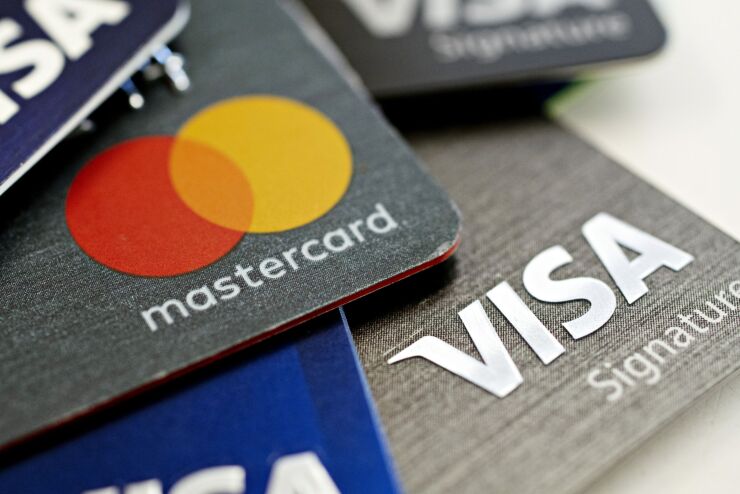The U.S. District Court in New York has issued final approval of an estimated $6.2 billion settlement in the merchants' class-action lawsuit over swipe fees, a 15-year-long case against Visa and Mastercard.
But the struggle between merchants and the card brands doesn't end here.
The conflict will continue in the high-stakes portion of the lawsuit separated from the monetary settlement question two years ago to address injunctive relief over the question of future card brand rules.
The final approval order issued last week on the settlement payout had been delayed since November because of a hangup stemming from whether a large company could cut its own settlement with the card brands, but leave its franchisees out of the equation.
Valero Energy Corp. made a separate deal with the card brands earlier this year, but included transactions for every Valero gas station across the country in determining its reimbursement. The company notified a vast majority of Valero stations, many of which are individually owned, that they were out of the settlement.

"For many, it was the first time they had heard about Valero making its own deal," said Doug Kantor, a partner at Steptoe & Johnson LLP and legal counsel for merchants and the Secure Payments Partnership.
"It created an issue in that it could apply to any franchisor or franchisee situation, so now everyone was on notice," Kantor said.
U.S. District Court Judge Margo K. Brodie, who issued the final settlement approval, released a notice three weeks ago to alert merchants facing that type of franchisee situation that if they felt they were removed from the class-action settlement without their authority, they could come back into the settlement.
The delay added frustration for merchants prior to last week's approval because Visa and Mastercard had agreed to the settlement late in 2018.
Brodie took over the case when John Gleeson stepped down from the bench in 2016. Gleeson approved a $5.7 billion settlement in 2013, but a federal appeals court rejected it three years later because of what it cited as an unfair provision that barred merchants from suing over fees in the future.
After the 2016 setback, the
The injunctive relief part of the lawsuit calls for changes in network rules, though legal teams are currently in expert discovery for upcoming judgment briefs and motions.
Because that portion of the lawsuit seeks changes in network rules regarding fees and alleges the Honor All Cards rule prohibits merchants from negotiating lower rates, it is likely to cause this particular conflict between merchants and the card brands to continue for years.
"While the merchants were definitely interested in being compensated for the above-market pricing they have pretty much experienced since the start of the industry, it does not solve for the fundamentals that caused this pricing in the first place," said John Drechny, CEO of the Merchant Advisory Group.
Many merchants view the settlement as "just another reason for the networks and issuers to raise the cost of interchange" and thus leaving merchants without significant gains, Drechny added.
Merchants have cited the card brands' freedom to make network rules that include default interchange, Honor All Cards, Honor All Wallets and other prohibitive rules that strengthen their power.
"Merchants would like to be able to decide which cards best fit their business strategy and not be forced to accept all cards, regardless of the fee structure or lack of incremental sales," Drechny said.
Most any company would likely welcome the opportunity to force merchants to use their products in an edict that would say if you carry one product, you have to carry them all, Drechny added. In effect, he says, that is what the card brands are doing.
"Imagine the benefit Coca-Cola or Procter & Gamble would have if they could say if you carry Coke or Tide, you must carry every product we dream of," Drechny said.
Lawsuits and clashes between merchants and card brands are not likely to diminish without some type of fundamental changes, Drechny added.
"Merchants would like to see changes made to create a fair, competitive market," he said. "In the absence of these types of changes, which would be preferable, we will continue to see the intervention of government regulators across the globe to prevent the natural tendency to use the market powers which the courts have already determined the networks possess."
As for the monetary settlement and final approval order, the court stated the settlement was "entered into in good faith, following arm's-length negotiations and was not collusive" while also calling it "fair, reasonable and adequate" for merchants that accepted Visa and Mastercard payments at any time since 2004.





